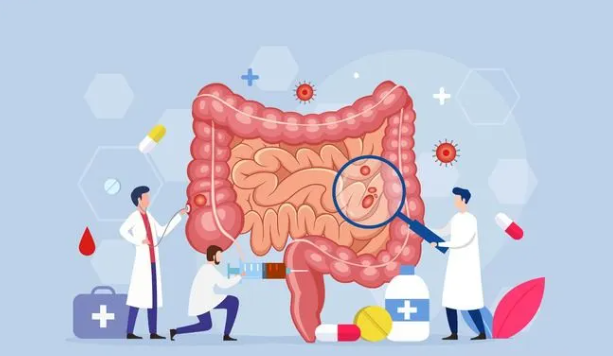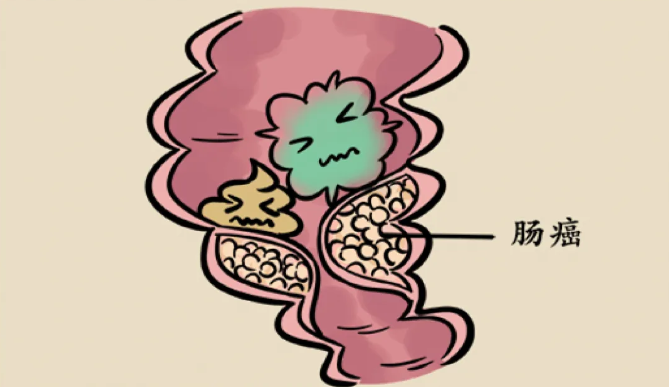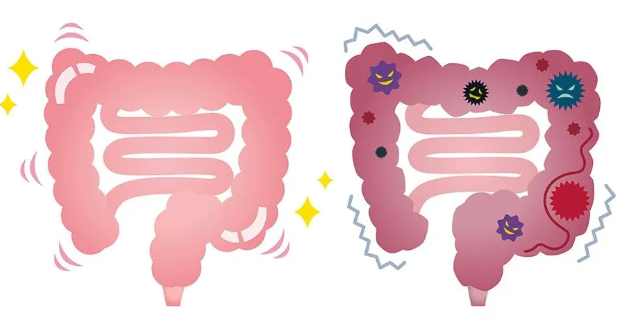Intestinal tract, as an important digestive organ and the largest immune organ of our body, is known as “the second brain of the human body”. However, intestinal cancer is like a silent “invisible killer”, which is gradually threatening our health. In the face of cancer, people always “talk about cancer discoloration”, but in fact, many times, understanding cancer-related knowledge and paying attention to healthy lifestyle can reduce the risk of cancer.

Intestinal cancer, known medically as colorectal cancer, occurs primarily in the colon and rectum. It is worth noting that the incidence of colorectal cancer is closely related to age, especially among people aged 40 to 50, and the proportion of male patients is significantly higher than that of female patients.
Have you noticed the early symptoms of intestinal cancer?
Bowel cancer is terrible, but it is not unpreventable. In fact, early intestinal cancer often has some imperceptible symptoms, as long as we observe carefully, we can detect and take measures in time.

1. Hematochezia: Hematochezia is one of the earliest and most common symptoms of intestinal cancer. Because of the friction between the tumor and the stool, it is easy to cause bleeding. In the early stage, there may be only a small amount of bleeding occasionally, but with the development of the disease, the amount of blood in the stool will gradually increase, and there may even be mucous bloody stool or purulent bloody stool.
2. Changes in bowel habits: If you notice a sudden change in your bowel habits, such as an increase in frequency, a lack of desire to defecate, or an irregular stool shape, this may be a signal of bowel cancer.
3. Anemia: Long-term chronic blood loss can lead to anemia, manifested as pale, fatigue and other symptoms. If you have no other obvious causes of blood loss, but have symptoms of anemia, you must seek medical examination in time.
4. Abdominal pain and distension: Early intestinal cancer may cause abdominal discomfort, such as dull pain, distending pain, etc. Sometimes these symptoms are relieved after a bowel movement or passing gas.
5. Diarrhea and constipation alternate: This is also a common symptom of intestinal cancer. Because the growth of tumors can affect the normal function of the intestinal tract, diarrhea and constipation occur alternately.

2. What are the common causes of intestinal cancer?
Understanding the risk factors of intestinal cancer will help us better prevent and screen this disease.
1. Bad eating habits: Long-term consumption of high-fat, high-protein and low-fiber foods can easily lead to slow intestinal peristalsis and increase the chance of contact between carcinogens and intestinal tract.
2. Lack of exercise: Lack of exercise slows down the body’s metabolism and reduces immunity, thus increasing the risk of cancer.
3. Smoking and drinking: Smoking and drinking have been linked to many types of cancer, including bowel cancer.
4. Genetic factors: If there are relatives with a history of colorectal cancer in the family, the risk of colorectal cancer will increase accordingly.

3. How to prevent intestinal cancer?
To prevent intestinal cancer, we should start from the dribs and drabs of life.
1. Adjust the diet structure: eat more foods rich in dietary fiber, such as vegetables and fruits; reduce the intake of red meat and processed meat; avoid over-cooking food, such as frying, smoking and roasting.
2. Keep moderate exercise: Do 60-120 minutes of moderate intensity aerobic exercise every week, such as brisk walking, swimming, etc. You can also try some strength training to strengthen your muscles.
3. Regular physical examination and screening: For high-risk groups (such as family history, long-term hematochezia, etc.), colonoscopy and other related screening items should be carried out regularly in order to detect and treat intestinal cancer early.
4. Relax and work and rest regularly: Keeping a good attitude and adequate sleep can help maintain the normal function of the immune system, thereby reducing the risk of cancer.
Although intestinal cancer is terrible, as long as we understand its symptoms, causes and preventive measure, we can effectively reduce the risk of disease. Remember, a healthy lifestyle is the cornerstone of all disease prevention. Let’s take care of our intestinal health from the perspective of “intestines”!